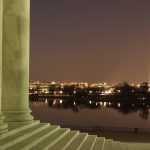By Adam Mossoff and Kevin Madigan
 Following the Supreme Court’s four decisions on patent eligibility for inventions under § 101 of the Patent Act, there has been much disruption and uncertainty in the patent system. The patent bar and most stakeholders in the innovation industries have found the Supreme Court’s decisions in Alice Corp. Read more
Following the Supreme Court’s four decisions on patent eligibility for inventions under § 101 of the Patent Act, there has been much disruption and uncertainty in the patent system. The patent bar and most stakeholders in the innovation industries have found the Supreme Court’s decisions in Alice Corp. Read more

 Earlier this month, a bipartisan group of Senators introduced the Creating and Restoring Equal Access to Equivalent Samples Act (or
Earlier this month, a bipartisan group of Senators introduced the Creating and Restoring Equal Access to Equivalent Samples Act (or  It is common today to hear that it’s simply impossible to search a field of technology to determine whether patents are valid or if there’s even freedom to operate at all. We hear this complaint about the lack of transparency in finding “prior art” in both the patent application process and about existing patents.
It is common today to hear that it’s simply impossible to search a field of technology to determine whether patents are valid or if there’s even freedom to operate at all. We hear this complaint about the lack of transparency in finding “prior art” in both the patent application process and about existing patents.  This past April, we
This past April, we 